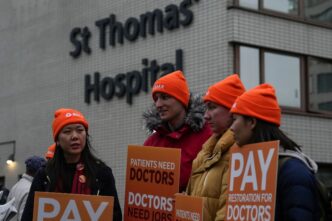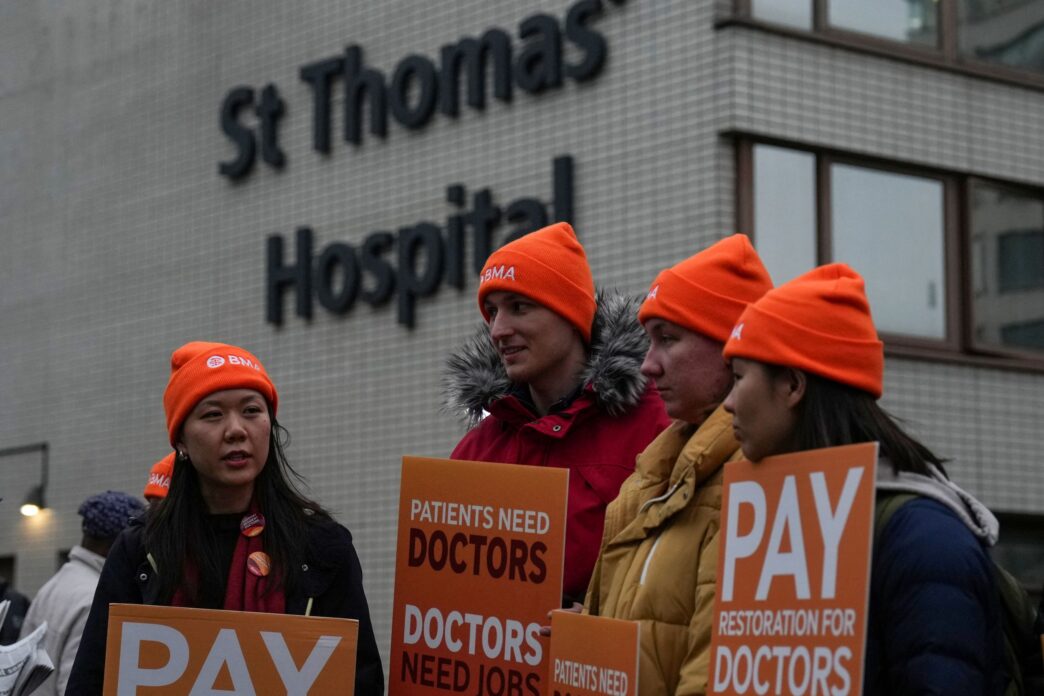Thousands of doctors in England began a five-day strike on Friday over pay and training positions, marking the 13th walkout by medical professionals since March 2023.
Health Minister Wes Streeting criticised the strike led by some resident doctors, who are not yet at the consultant level and constitute half of the hospital medical workforce.
Streeting accused the British Medical Association (BMA), the doctors’ union, of prioritising confrontation over patient care.
“We cannot and will not move on pay, especially not after a 28.9-per-cent pay rise over the last three years and the highest pay award across the entire public sector in the last two,” he said.
The performance of the state-funded National Health Service (NHS) is a significant political concern in Britain, especially as the Labour government under Prime Minister Keir Starmer faces mounting pressure to reduce patient waiting times.
The NHS’s ability to reduce waiting lists has been hindered, in part, by ongoing industrial action by resident doctors and consultants.

The BMA maintains that resident doctors require a 26-per-cent salary increase to restore their pay to its real value twenty years ago. Additionally, the union is seeking an increase in the number of available training positions.
This strike occurs amid an extended cost-of-living crisis that has led to strikes across sectors of the UK economy.
In the past three and a half years, numerous groups, including teachers, nurses, ambulance staff, lawyers, train workers, and border staff, have participated in walkouts.
Earlier this month, workers from the London Underground accepted a 3.4-per cent pay increase following a five-day strike in September that severely disrupted the transport network in the capital.


 Trending
Trending 













